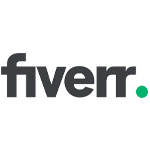Freelancing guide for beginners
From journalism to IT to design, pretty much every industry requires work experience. But what's the secret to learning the trade and getting paid? Freelancing. Here's how to get started.

Credit: Africa Studio (background), Sira Anamwong (lightbulbs) – Shutterstock
All too often, it takes tough, unpaid internships to get a foot in the door of your chosen industry.
But, thankfully, there's a better alternative. With a bit of determination, you can become a paid freelancer, providing articles, animations, apps, admin support or anything else to the world.
The benefits are aplenty. Not only will it be great experience for your CV but, with the right project, the pay can be pretty decent too. So, without further ado, here's our ultimate guide to becoming a freelancing success.
What's in this guide?
- What are the pros and cons of freelancing?
- What can you do as a freelancer?
- How much can you earn as a freelancer?
- Best websites for finding freelance jobs
- Top tips for writing a freelancer profile
- Four ways to stand out as a freelancer
- Extra freelancing tips for beginners
- How to withdraw your earnings as a freelancer
What are the pros and cons of freelancing?
Let's face it: the idea of rocking out of bed, making a ridiculously quick commute to your laptop and beginning work sounds like bliss. But working from home isn't necessarily as easy as it sounds, and every advantage is tempered with drawbacks.
These are the best and worst parts of working as a freelancer:
Pros of freelancing
Here are the pros of working as a freelancer:
- Flexible working hours – You pick your hours, work from home and work around your studies.
- Good work-life balance – With no rules, you can take regular breaks and head out to see friends.
- Control over your workload – You can be selective about which tasks to take on. If a job will take too long, or doesn't pay well enough, there's no harm in rejecting it.
- International clients – As the majority of freelance work is done online, freelancers can work with people from around the world.
- Potential to make a lot of money – With the right reputation, the amount of money you can earn is limitless.
Our content editor, Lauren Allen, loves the flexibility of freelancing:
For me, the biggest perk of freelancing is the ability to choose my own hours. If I'm going on a mid-week city break or attending an event, I'll just work over the weekend instead.
Cons of freelancing
Here are the cons of working as a freelancer:
- Keeping up with tax – Filling out self-assessment tax returns can be confusing, but our guide can help.
- Unstable income – You might have to deal with late payments and it's not always easy to find commissions.
- Distractions at home – It can take a lot of discipline to not procrastinate or spend too long in bed when you choose your own hours.
- Work is competitive – Plenty of people will be applying for the best projects, so you'll have to work hard to gain experience and make your application stand out.
- Working on your own – As most of your work will be done by yourself at home, it can get lonely. Look for freelancing groups on sites like Facebook or Meetup to find other people to chill with while you work.
To avoid getting cabin fever, and to stay focused, we recommend heading out to a coffee shop and making the most of any free WiFi you can find. Public libraries are also great places to work.
Breaking up your tasks into bite-sized chunks and changing your workspace a couple of times a day will help you stay fresh and creative.
What roles can you do as a freelancer?
These are some of the best freelance roles for students:
Writing and translating

Credit: Boiarkina Marina – Shutterstock
If you're wondering how to start freelancing, writing and translation work is probably the most accessible type of work to start doing. If you're studying an essay-based degree and spend most of your days writing anyway, this choice is a no-brainer.
Freelance jobs in this field are hugely varied. You could be asked to write blog posts, whole eBooks (as a ghostwriter), transcriptions of audio files, product descriptions for online stores, or even social media content.
You could even try your hand at freelance journalism, writing pitches to magazines, newspapers and other publications.
Just be aware that some publishers (even big names) will try to take advantage of your student status and expect you to work for free. Always ask about their rates before agreeing to write for them.
Plus, if you're fluent in another language, translation work beckons. Some languages can earn you more than others – one language could earn you over £50,000!
Desirable qualities of a freelance writer or translator
You're a stickler for grammar, and love learning new, random things – such as whether it's normal to have a mole on your private parts, or where the best place to buy a dishwasher is in Slough (both writing assignments we've seen before).
Graphic design
Design is a bit more of a challenging sector to join when you're starting out as a freelancer. Not only do you need to own some industry-standard software, but you need top skills and creativity to use it to its full potential and meet the demands of your clients.
You could be creating a logo for a new start-up company, animating videos, illustrating snazzy PowerPoint presentations, or even working on adverts that will appear in papers and magazines.
Desirable qualities of a freelance graphic designer
You've got a good eye for detail, a knack for computers and impressive design skills.
Programming and IT

Credit: MIND AND I – Shutterstock
Programmers are the brains behind the websites and apps we all use every day. They're tasked with building software that is well-designed and easy to use for the typical customer, and often have to write lines and lines of code to make it happen.
As well as this, you might offer virtual IT support. Typical projects include helping websites with their search engine optimisation (SEO), which involves making them more visible in search engine results. Opportunities for analysing statistics and managing databases are common on freelance sites, too.
Desirable qualities of a freelance programmer or IT specialist
You understand how the internet works, appreciate good design and you're skilled at brainstorming. Knowing languages such as HTML, CSS and JavaScript is a plus too (you can take free online courses with qualifications to learn more).
Admin support
This industry has fierce competition. One of the most popular tasks is called transcription. This involves listening to recordings of conversations and typing them out. You could even be a part-time remote personal assistant – wearing a hoodie and joggers rather than dressing to impress.
The roles and responsibilities of a good virtual assistant include answering phone calls from customers, planning the boss's schedule and booking their travel arrangements, or performing light research for their reference.
Desirable qualities of a freelance admin assistant
People think you're well organised. This means that you're always saddled with planning parties and school reunions. You've also got great attention to detail and top time-keeping skills.
Quirky freelance jobs
It turns out you can freelance as pretty much anything (assuming you're good enough at whatever you're selling).
If you fancy yourself as a bit of a Cupid, you could become someone's dating app coach.
Alternatively, why not become a pop culture coach and teach people about your favourite TV shows and films? The dream, we know.
How much money can you make as a freelancer?

Credit: Pixel-Shot - Shutterstock
In the freelance world, there are two ways of getting paid – by the hour, or with a fixed fee for each project.
Unfortunately, when roles are remote, your competitors for the best jobs are often from around the world. And, if they live in a developing economy where it costs a lot less to live, it can be impossible to compete with their prices and still get the minimum wage.
To stand out from the crowd and earn the rate you deserve, you need to create a gripping application or pitch. If you possess rare or advanced skills, highlight them to potential clients and you may be able to command a higher rate as a result.
But, just make sure you have realistic expectations of the extra money you could earn (sadly, not many clients are willing to pay £500/hour). Start by having a browse of the existing jobs on major freelancing sites – see below.
WARNING: In return for helping you find work, freelance companies take a cut of your earnings. Make sure you're aware of the commission you'll be paying, and add these charges on top of whatever you're quoting a client.
It's best to avoid working with clients who want to pay you outside of freelancing sites (unless you know them personally). It makes it easier for them to dash off into the sunset without settling the bill. You could even be banned from applying for new jobs by the freelancing site for trying to dodge their fees.
Best websites for getting freelance jobs
Here are four of the best sites to find freelancing work:
-
Upwork
In 2014, two of the most well-known freelancer websites, Elance and oDesk, merged to create Upwork.
With $23 billion in lifetime freelancer earnings, it's one of the biggest services of its kind.
They host everything from hourly-paid gigs with start-ups to larger projects with some seriously high-profile clients.
The website is really clear and easy to navigate. Plus, you get plenty of info about what clients are looking for in postings which makes it much easier to write your application.
Biggest advantage: Upwork has a secure payment protection system that ensures you're always paid for the work you do. Clients send payment to Upwork before the job begins, and the company keeps the money safe and secure so neither of you can access it without the other's permission. Once the job is finished and approved, the cash hits your account.
Biggest drawbacks: Upwork charges service fees of 10% on your earnings, including bonuses. There are a few exceptions, which you can find on the Upwork website.
They also offer a weird 'service' to clients hiring for hourly-paid work. This is where they send a snapshot of freelancers' screens every 10 minutes to make sure they're working for their money. Pretty patronising.
-
Freelancer
Freelancer is a pretty straightforward website to use. It's easy to sign up and you can list up to 20 of your skills for free once registered. Then, it looks for jobs that match your talents.
If you want to include more skills, you can upgrade your account. Depending on the membership you choose, it's possible to add up to 50-400 skills. You'll also get some additional perks. However, monthly fees will set you back anything between $4.99 (around £3.80) and a hefty $99 (around £76).
Biggest advantage: You can see exactly how much people are bidding to work on a project. This feature isn't usually seen on other sites. It allows you to be competitive and see what experienced rivals typically charge.
Biggest drawback: Again – fees. Freelancer takes 10% of your hourly rate and 10% (or £3.50 – whichever is more) of your fixed-price project fees. They also run 'contests' where clients receive multiple submissions for a project, and only pay for the one they like (full fee info). It sounds great for the buyer, but freelancers risk doing a lot of work for no reward.
-
PeoplePerHour.com
PeoplePerHour.com is a super friendly company. At one point they were even inviting freelancers to use the desks in their office – nice touch!
You'll often see clients on PeoplePerHour stating how much they're willing to spend for a project. The pay's generally not bad, and we once spotted a job which involved coining a new slogan for a company. Their budget? A cool £287.
Biggest advantage: If you're a medium or high earner, you won't pay too much commission. For earnings between £250 and £5,000, there's a fee of 7.5%, and all earnings above that have a fee of just 3.5%.
Biggest drawback: For lower-earning projects, the fees are pretty hefty. When you're paid less than £250 from a client, you'll be charged a 20% fee.
-
Fiverr
The three sites above are probably the main contenders in your quest for freelancing work. But there's a final, quirky site that's definitely worth a mention – and that's Fiverr.
This site started out as a marketplace, where people around the world could offer their services (or 'gigs') for the princely sum of $5 (about £3.80). Examples include:
- "I will create a cinematic movie trailer for $5"
- "I will write a message underwater for $5"
- "I will do a voiceover of 100 words as an Australian man or woman for $5".
As you can see, some of the tasks are quite surprising, but it allows you to get creative.
Since the site was first set up, a lot of people have started charging more than $5 for their services. As a Fiverr seller, you can offer Basic, Standard and Premium packages with varying levels of service or speed.
It's best to offer the most basic level of your services for $5. From here, you can offer add-ons for any price you wish, like a fast turnaround for $20 (about £15.10), or a longer video or article.
Biggest advantage: Fiverr lets you do freelance gigs in pretty much any field, doing just about anything imaginable.
Biggest drawback: This site has fees of 20% – so if you charged £50 for a job, you'd have to give £10 of it straight back to Fiverr.
Which freelance sites pay the most?
Let's say you earn £800 in a month. From largest to smallest, here's how much you'd take home after paying each featured freelance site their fee:
- PeoplePerHour.com: £740
- Freelancer*: £720
- Upwork: £720
- Fiverr: £640.
* 10% fee based on fixed-price project
Although PeoplePerHour.com would charge the lowest fees for these earnings, remember that they calculate their fees in brackets like a tax system. So, it's worth considering how much you plan to work before choosing which site to find work on.
Please note that, while Fiverr's flat rate of 20% might seem like a real turn-off, the site has its own merits to potentially outweigh the fees. It's arguably the best place to go if you're selling a quirkier service, so the extra business it can bring in may be worth it.
5 top tips for writing a freelance profile
To get work, you'll need to make a stand-out profile and proposals (similar to job applications) for the opportunities you find on freelancing sites.
For the application, there will be several sections for you to fill in. Getting this right is crucial, especially if you're a professional writer. In many ways, this is the most important sample you'll ever provide to a prospective client.
These techniques can help you write the best possible freelance profile:
-
Highlight your strengths to potential clients
Unlike dating profiles, you're fully entitled to blow your own trumpet on a freelancing site.
Don't be afraid to namedrop the clients you've worked with previously, and include quotes from their feedback in the introductory paragraph. Showing evidence of your extensive experience will encourage clients to take you seriously.
-
Provide high-quality freelance work
Even if you write the world's best profile, no one will pay attention if you have a long history of one-star and two-star reviews. So, do every job to perfection and don't take on too much work too soon.
Once an assignment is complete, (politely!) prompt your client to write a testimonial. If you manage to get lots of five-star feedback at the beginning of your freelancing career, it will become easier and easier to pick up new work. The first few weeks are always the hardest.
-
Show your personality in freelance proposals

Credit: Jacob Lund – Shutterstock
You may be working remotely, but it's still important to be personable.
Share info about your extracurricular interests as well as your work skills. If you're great at playing the bassoon or you're a gold medallist archer, don't be afraid to say so and show your fun side. Clients on freelancing sites are rarely stuffy and love a good personality.
-
Get verified on freelance sites
It's highly unlikely that you'll meet most of your clients, making it difficult for them to verify your credentials.
Thankfully, many freelancing sites can do this on your behalf by checking your qualifications and geographical location. Once you've done this, you'll get a big, shiny tick next to your name.
Also, consider taking aptitude tests in your chosen area of freelancing. There are usually short, 40-minute tests on things like your Photoshop knowledge, coding skills, editing abilities and spelling prowess. The results then appear on your profile and, if you're lucky, you could be in the top 1%.
-
Keep your freelance profile brief
Bearing all of the above points in mind, make a concerted effort to keep your profile concise and to the point. If a client has shortlisted 10 possible providers, they don't want to read a 2,000-word profile every time.
Boil your page down to the most important points, and carefully cherry-pick the samples included in your portfolio.
Also, we lied. There are actually six points to the perfect freelance profile.
The last one is to CHECK YOUR SPELLING AND GRAMMAR. Even the slightest typo undermines your credibility, especially if you're vying for writing and editing work. It may sound obvious, but you'd be surprised how many people don't make the effort to thoroughly proofread their profile.
How to stand out as a freelancer
Now – you've got the profile, an idea of what you want to freelance in, and an expectation of how much money you want to earn. But how do you secure that elusive job offer?
These are the four best ways to win work as a freelancer:
-
Choose a freelance membership level that suits you
Some freelancing sites offer different membership levels for sellers.
For those that do, a free membership will likely limit you to sending out just a few job applications per month. Buying a subscription allows you to send dozens, boosting your chances of getting commissioned to do freelance work.
Typically, the cost of membership will be less than you could earn for just one job (depending on what line of work you're in, of course). As paid memberships will let you apply to loads more jobs, the cost could well be worth it if you expect to get lots done.
-
Be selective about freelance jobs
Find clients who have been incredibly detailed throughout their descriptions. This allows you to personalise your response, and show them that you've paid attention to their requirements.
And, on that note, don't be afraid to ask questions if anything seems unclear in an advert. You don't want to start a task, only to find out it's very different to what you'd expected.
-
Consider sponsored proposals
For a fee, some sites let you 'sponsor' your application. This means you can appear at the top of the list of proposals the client sees.
The cost can add up, but when you consider how many applications a client gets, they probably are more likely to go for someone who uses a sponsored proposal.
You'll find that this marketing technique will be invaluable when you're first trying to get noticed, but make sure that your proposal and profile are in top shape. There's no point paying extra to draw their attention to a rushed application.
-
Personalise every application
The one thing you should never, ever do when you're applying for freelance work (or doing any job application, for that matter) is use the same, generic overview of yourself for every role.
Clients can spot copy-and-paste jobs a mile off, and they often use little tests (like asking freelancers to use a secret word in their application) to make sure applicants pay attention. If you have an individualistic approach, it proves you care and improves your chances.
Extra freelancing tips for beginners

Before taking on any commissions, take note of these extra freelancing tips:
- Keep up with tax and National Insurance – Try saving 20% of your earnings, as that should cover the amount you'll owe in the new tax year (starting in April). Our simple guide to tax explains the process, and if you feel you're overpaying, check out our guide to getting a rebate.
- Look out for dodgy clients – Always use a third-party freelancing site (or payment method) when possible, and make sure you know exactly how much you'll earn for a job upfront.
- Don't do illegal jobs – This sounds obvious, but there are some jobs (e.g. editing videos for a porn site or even writing erotic novels) that could get you into trouble if they're not totally legit.
- Never provide free samples – Many freelancing sites forbid their talent (that's you!) from dishing out free samples. Instead, you can politely ask to be hired for the sample only at first. This lets clients decide whether to continue with your services afterwards.
- Avoid profit-sharing opportunities – Clients who try to offer you a share of the profits from a website (instead of a fee for your hard work) are usually bluffing about their "amazing opportunity" and should be avoided like the plague.
- Don't get swayed by freebies – Some freelancing services offer great freebies such as complimentary business cards and heavily discounted access to workspaces. But only let this affect your decision if the price is right and if you'll actually make use of them.
- Get repeat work with good clients – When you finish a project, you could offer a discount of 5% – 10% off your rate if they hire you again. Clients love a bargain, and it's more cash in your pocket without hunting for new work. And remember to ask good clients for a testimonial.
- Ask for bylines – Some clients might not intend to include your name with your published work, but it's super important to ask. If you have a byline (your name included as author/creator), you can include the work in your portfolio.
- Use freelancing tools – Skype and Dropbox can be essential – especially for sharing updates and files with clients. Dictaphones are great for recording meetings and interviews (particularly useful for freelance journalists/PR). You could also check out project management tools like Trello or Basecamp, but freelance sites tend to have similar functionality now.
Best payment methods for freelancers
When you've completed your work (and given yourself a pat on the back) you'll want to withdraw your hard-earned cash. Most freelance sites give you a plethora of choices, but each offer pros and cons.
These are the most common payment methods to use when withdrawing freelance earnings:
- PayPal – The payment is pretty quick, and PayPal offers an extra layer of security. But if you're being paid in dollars, the exchange rates can be quite brutal. Despite this, it's the payment option we'd recommend as it's the least hassle, most safe, and the fastest by a country mile.
- Wire transfer – Getting funds sent straight to your bank is possible. However, it's not as simple as PayPal to set up, arguably not as secure, and some sites charge you every time you make a transfer.
- Cheque – Sure, you dodge extra charges but this is the most time-consuming method. Not only do you often have to wait for the cheque to arrive in the post (which will take a fair while from international clients), but you'll also have to wait a few days before it's processed and finally in your bank account.
- Prepaid card – Some freelancing sites offer prepaid cards which enable you to draw cash straight from your account on their website. However, you'll have to pay fees for every transaction you make. Also, expect to be stung whenever you withdraw cash from an ATM.
One last thing: to get freelance work, make sure you look professional online.
Prices were correct at the time of writing.












